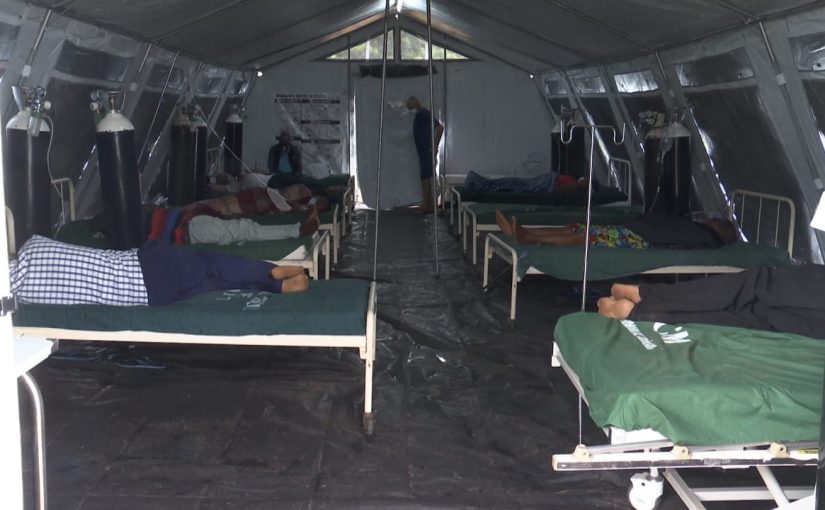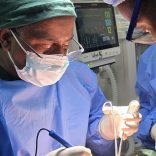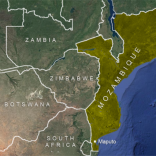Mozambique: A 'hinge zone' for understanding human evolution in prehistory
Covid-19: Former transit ward at HCM is now a permanent in-patient centre – Watch

Photo: O País
The transit ward at the country’s largest hospital had initially been set up to receive patients who had tested positive for Covid-19 prior to their being transferred to the Polana Caniço General Hospital, also in Maputo, where a dedicated Covid-19 treatment centre was set up in the early stages of the outbreak in the country.
But the Polana Caniço General Hospital is already at the limit of its capacity, with the Covid-19 patients in the ‘transit’ care centre now receiving regular inpatient care there.
This Thursday, ‘O País’ visited the HCM transit ward, where internist Madalena Manjate, explained that the centre is open 24/7, with specialised staff operating there.
“We have the entire team of staff that treats patients [with Covid-19] on call 24 hours a day. The infirmary has nurses and doctors,” Doctor Manjate said.
At the beginning of the pandemic, the transit ward had 40 beds. Cases rose and, 10 months later, its capacity had risen to 60 and now to 100 beds, with demand still increasing daily.
HCM director Mouzinho Saíde said that, even though the health unit has a capacity of 100, “with the avalanche” that pours in every day “we don’t know if it will be enough to maintain the level of care that we can currently offer”.
The tents set up to serve as temporary patient care rooms, Saide said, “are not suitable for everyone, nor enough, so we appeal to people to stringently observe individual and collective protection measures, so as not to expand [the numbers of those suffering from] this disease”.
Toll on staff
Since 22 March last year, when the disease was first detected in Mozambique, at least 375 health professionals working at Maputo Central Hospital have tested positive for Covid-19, including 110 doctors, 92 nurses and technical and administrative staff.
“By January 20, we had 100 professionals with active cases. These are professionals who are not working because they are infected. We also have more than 250 recovered professionals. If we continue to register this level of infection, we will certainly have difficulty in adequately caring for our patients,” the hospital manager warned.
Saíde estimates that around 6,000 people visit the HCM every day, many of whom could avoid it.
Inside the HCM infirmary for coronavirus patients, men and women criss-cross the narrow corridor, fighting day and night to save lives.
Jorge Mambo, a recently graduated doctor working at the forefront of the fight against Covid-19, appeals to people to take the disease seriously.
“I wanted to appeal to everyone to observe the Ministry of Health prevention recommendations, because Covid-19 kills. It is a disease that worries both the authorities and doctors. Let’s all fight this pandemic together,” he exhorts.
Helena Chissaque, chief inpatient nurse, shares with O País some of the day-to-day challenges in the fight against Covid-19.
“At the moment, cases are on the rise and the management goes to great lengths to provide equipment to protect staff and fight the pandemic. The day-to-day has been a challenge – you could say that it has not been easy. But it hasn’t been impossible either; we are still here, working,” she reports.
The disease, which is characterised by acute respiratory failure, has increased the demand for oxygen from the previously needed 29 bottles per day to 110 .
At least 20 patients have died of Covid-19 at the Maputo Central Hospital centre, where prayers are said at the beginning and end of each shift.













Leave a Reply
Be the First to Comment!
You must be logged in to post a comment.
You must be logged in to post a comment.